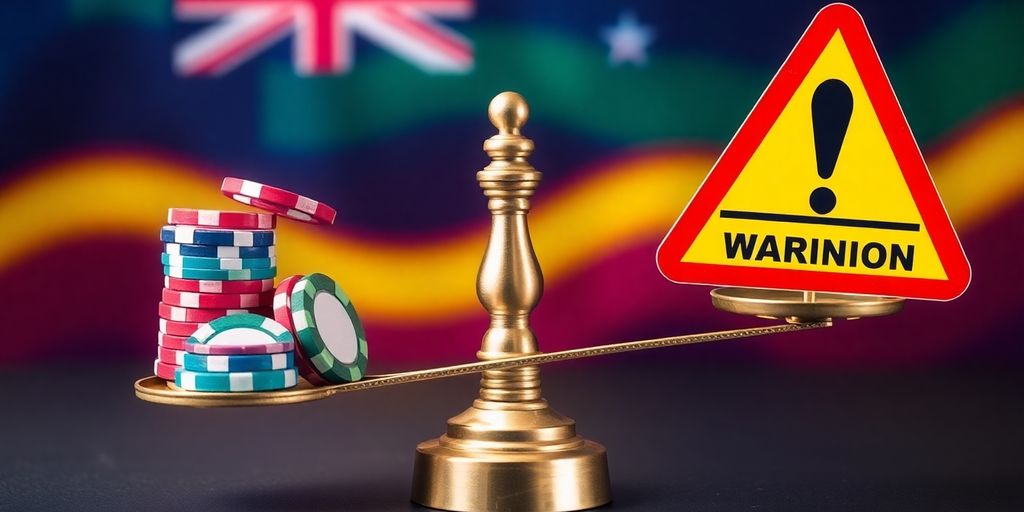Australia’s gambling industry is facing increasing scrutiny as calls for reform intensify. At the recent Regulating the Game 2025 conference in Sydney, former Australian Criminal Intelligence Commission (ACIC) head Michael Phelan warned that excessive regulation and taxation could drive players toward illegal gambling operations, undermining the very reforms intended to protect them.
Key Takeaways
- Excessive regulation may push gamblers to illegal operators.
- The gambling industry is crucial for tax revenue but must remain viable.
- Visibility in the gambling sector is essential for effective regulation.
- The balance between regulation and commercial viability is critical.
The Current Landscape of Gambling in Australia
Australia has one of the highest rates of gambling losses globally, with approximately AU$32 billion (US$20.1 billion) lost annually. This figure is exacerbated by the rise of online betting, which accounts for about 50% of total gambling losses. The gambling landscape is shifting, with sports wagering increasing while traditional horseracing betting declines.
Phelan emphasized that the gambling industry must adapt to these changes while ensuring that regulations do not stifle its viability. He noted that the barriers to entry for online gambling have lowered significantly, making it easier for illegal operators to thrive.
The Risks of Over-Regulation
Phelan’s remarks highlighted a critical concern: if regulation and taxation become too burdensome, legitimate operators may struggle to survive. This could lead to a scenario where players turn to unregulated, illegal markets, which lack oversight and pose significant risks.
- Key Concerns Raised by Phelan:
- Visibility Issues: Law enforcement needs clear visibility into the gambling sector to combat organized crime effectively.
- Market Viability: If legitimate operators cannot compete due to high costs, the market may shrink, leading to increased illegal gambling.
- Historical Precedents: Phelan drew parallels with the tobacco industry, where excessive taxation has led to a surge in illegal products and organized crime involvement.
The Need for Collaboration
To address these challenges, Phelan called for greater collaboration between regulators, operators, and law enforcement. He stressed the importance of understanding the gambling market’s dynamics to create a sustainable regulatory environment.
- Strategies for Improvement:
- Engage Stakeholders: Regulators should work closely with industry stakeholders to find a balance that maintains market viability.
- Monitor Taxation Levels: Regular assessments of taxation impacts on the industry can help prevent excessive burdens.
- Enhance Visibility: Ensuring that operators remain onshore will provide law enforcement with the necessary visibility to combat illegal activities.
Conclusion
As Australia grapples with the complexities of gambling regulation, the insights from the Regulating the Game 2025 conference underscore the delicate balance required. While reform is necessary to protect vulnerable players, it is equally important to ensure that the gambling industry remains viable and does not inadvertently drive consumers into the hands of illegal operators. The future of gambling regulation in Australia hinges on finding this equilibrium, ensuring both safety and sustainability in the industry.
Sources
- Gambling not as damaging as cigarettes, Australia’s PM advisor tells reform advocates, ReadWrite.
- Michael Phelan: The expanding criminal intersect of Australia’s casino industry, Gambling Insider.
- Former Australian crime intelligence head issues warning against over-regulation, excessive taxation of gambling industry – IAG, Inside Asian Gaming.

